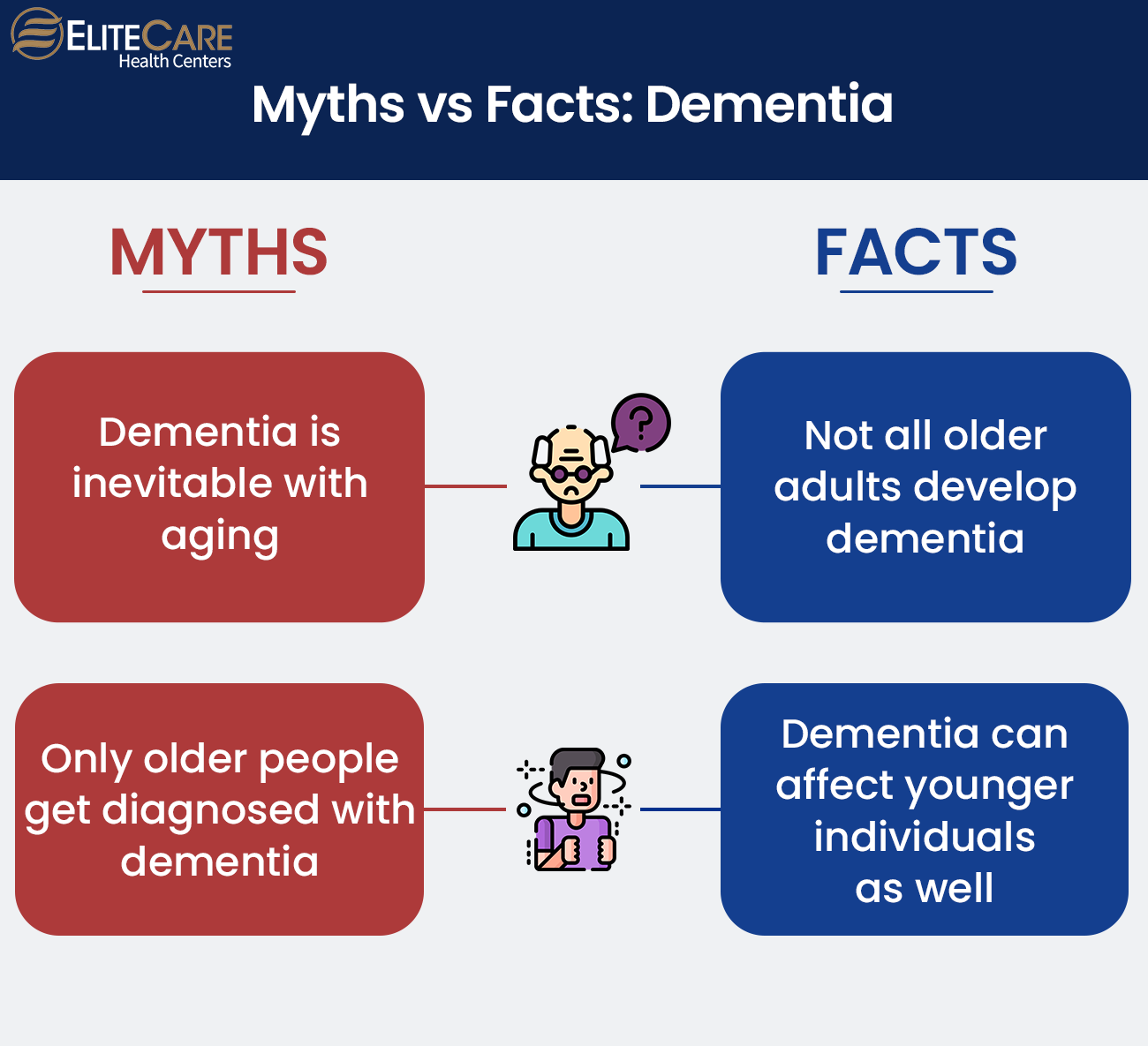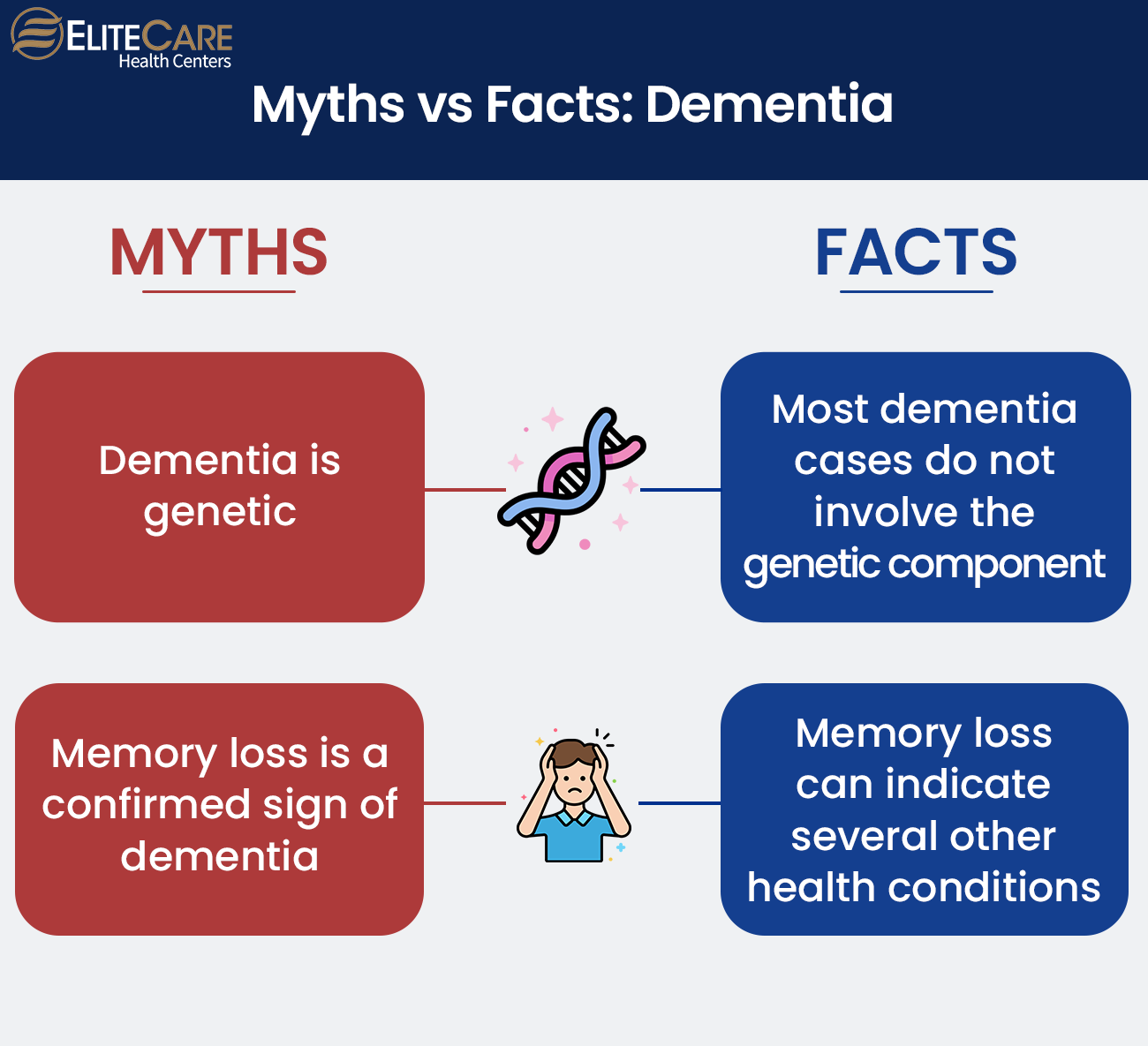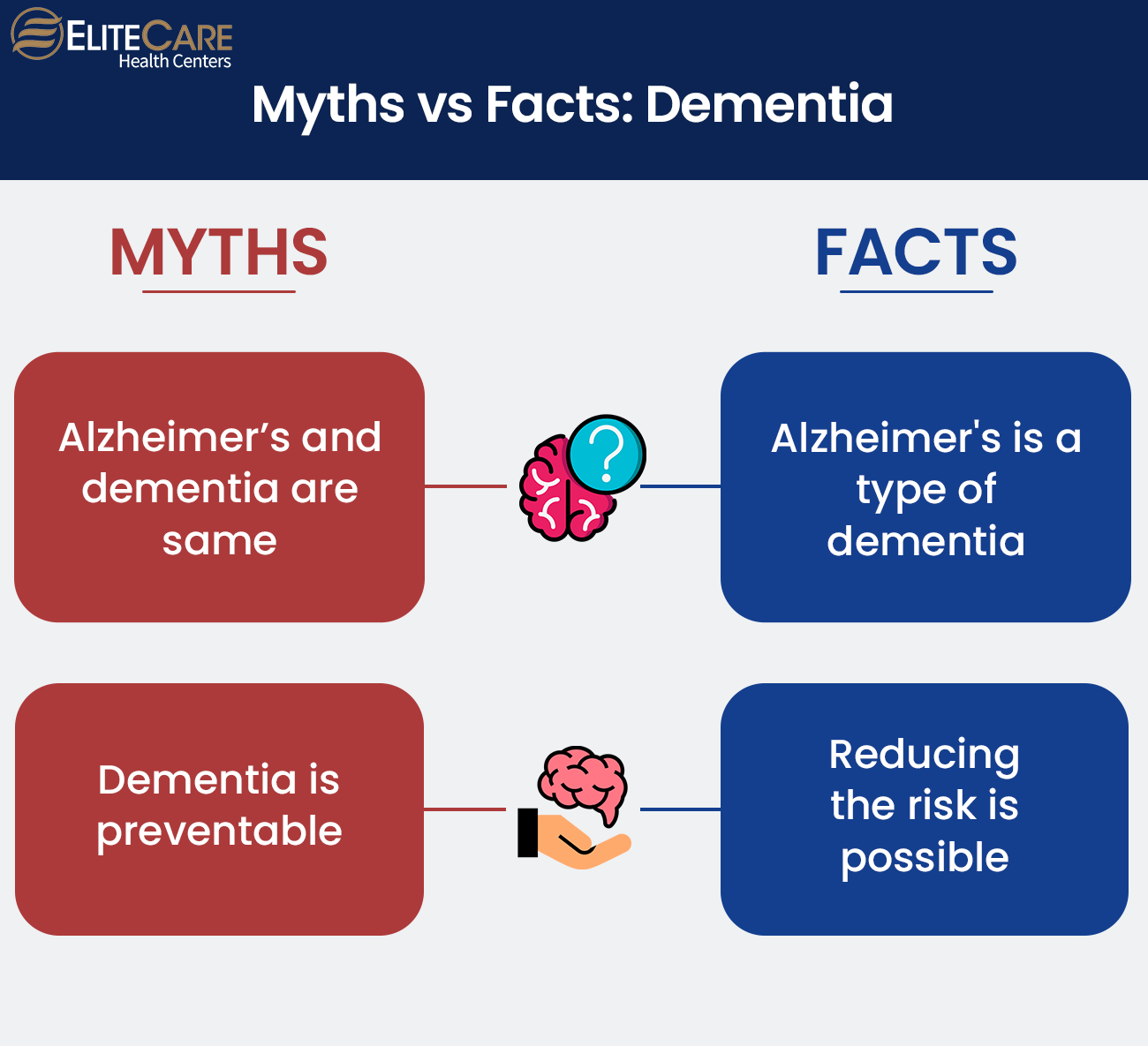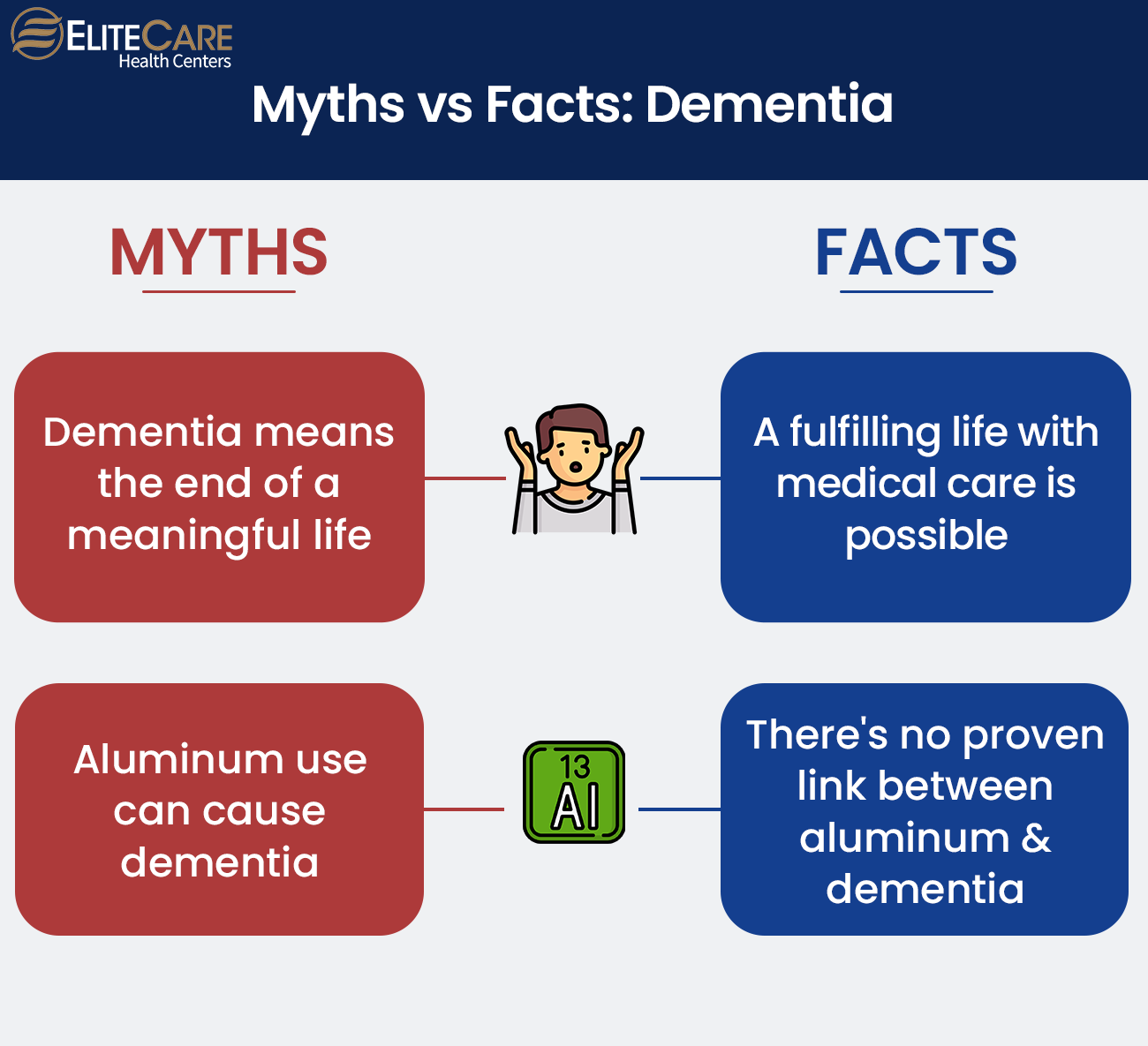
Dementia is not a single health condition but a broad term that describes a group of cognitive disorders. Cognitive issues related to dementia affect memory, thinking, and other mental abilities to an extent, where it interferes with an individual’s daily life and functioning. According to the CDC, approximately 14 million* Americans aged 65 and older will be living with Alzheimer’s, and other types of dementia by 2060.
The myths surrounding dementia can create stigma, preventing individuals from seeking advice from primary care physicians and receiving proper care. Therefore, it is crucial to dispel these misconceptions to help people make informed medical decisions.
In this blog, we will share some common myths about dementia and unravel the truth. Read on to learn more.
Common Myths About Dementia

Myth 1: Dementia is inevitable with ageing
Myth 2: Only older people get diagnosed with dementia
While older adults are at a higher risk of developing dementia, it is not exclusive to this age group. Dementia can affect individuals of various ages, and there are specific forms of dementia that can manifest in younger individuals as well.
Dementia that occurs before the age of 65 is often referred to as “young-onset dementia” or “early-onset dementia.” While it is less common than dementia in older adults, it still represents a significant number of cases with approximately 300,000 to 360,000 Americans under the age of 65 suffering from it.

Myth 3: Dementia is genetic
Myth 4: Memory loss is a confirmed sign of dementia
As individuals age, it is common to experience some mild forgetfulness or memory lapses – a condition commonly known as mild cognitive impairment (MCI). Vitamin deficiencies, thyroid disorders, sleep disturbances, depression, anxiety, and medication side effects can also cause memory loss and forgetfulness.
While memory loss is a common symptom of dementia, it does not always confirm a dementia diagnosis. Look out for few additional signs which are as follows:
- Impaired communication
- Difficulty with problem-solving
- Disorientation
- Challenges with performing regular tasks
- Frequent changes in mood and behavior
- Decline in judgement
- Loss of interest in activities that they once enjoyed
For sudden cognitive or behavioral changes, contact a medical clinic and consult a primary care physician for an accurate diagnosis.

Myth 5: Alzheimer’s and dementia are the same
While dementia is an umbrella term used to describe a group of cognitive disorders, Alzheimer’s disease is a specific type of dementia. It is the most common type of dementia characterized by progressive brain disorder that affects memory, thinking, and behavior significantly. Apart from Alzheimer’s there are several other types of dementia such as vascular dementia, dementia with Lewy bodies, and frontotemporal dementia. Each of these subtypes has distinct causes and symptoms.
Myth 6: It is possible to prevent dementia
Although there are certain measures individuals can take to reduce the risk of dementia, it is not possible to entirely prevent the onset of all types of dementia. Dementia is a complex syndrome caused by a combination of genetic, lifestyle, and environmental factors, and the underlying mechanisms are still undergoing research.
Exercising regularly, following a balanced diet, staying mentally and socially active, and quitting smoking may prevent the risk of dementia and overall cognitive decline. However, these lifestyle modifications do not guarantee prevention.

Myth 7: Dementia means the end of a meaningful life
Although dementia can impact comprehension, communication, and other cognitive abilities, it is possible to lead a fulfilling life with the help of proper care, healthy social interactions, and stimulation therapies. While adjustments may become necessary as the condition progresses, in the early stages, no immediate changes may be required.
Myth 8: Aluminum use can cause dementia
There has been a long-standing belief that aluminum exposure, such as from cookware, antiperspirants, or aluminum foil, can lead to dementia. However, current scientific evidence does not support this claim.
While aluminum can be found in the brains of individuals with Alzheimer’s disease, it does not mean that aluminum causes dementia. The human body has a limited ability to absorb aluminum from the digestive system. Therefore, the risk of getting dementia from aluminum is very low.
The Bottom Line
Debunking these common misconceptions can help raise awareness, challenge stigma, and offer empathy and support to those impacted by dementia. Early detection and intervention are crucial in managing dementia effectively. Do not ignore the signs and seek medical evaluation at the earliest for any cognitive concerns.
For any queries or concerns about dementia or any other cognitive disorders, contact EliteCare Health Centers, a top healthcare center in Florida, and consult a primary care physician. We are a medical clinic specializing in a wide range of senior care services. Schedule your appointment now!
* Data retrieved from What is dementia? | CDC. (n.d.).






